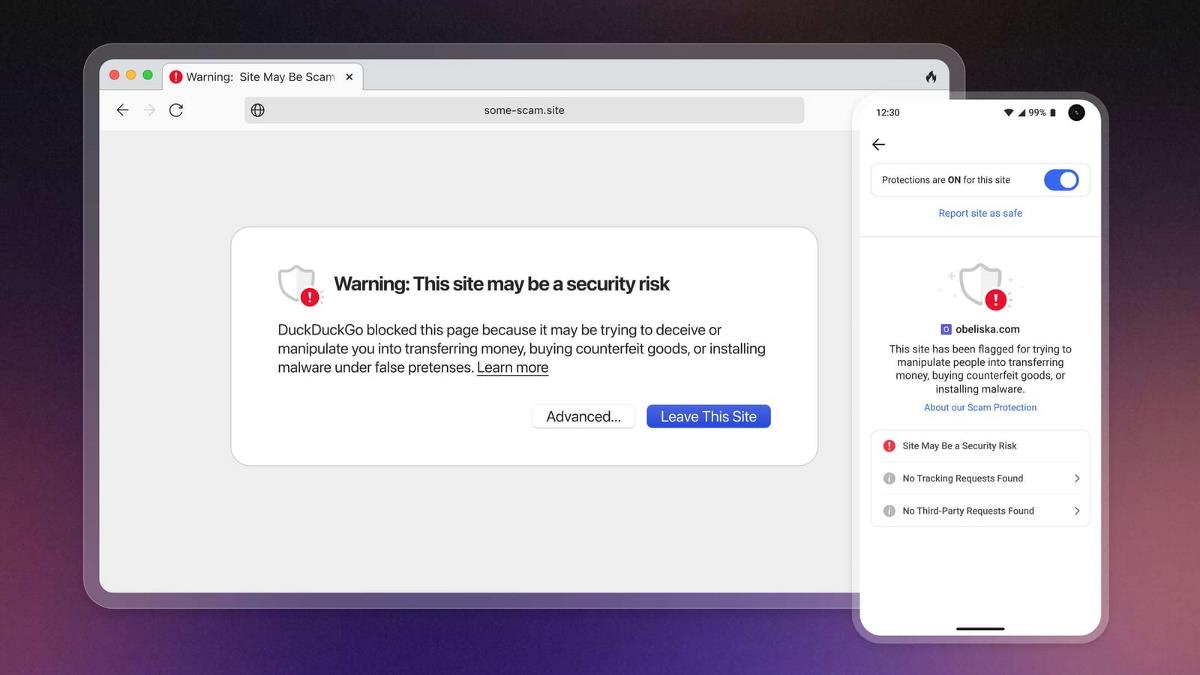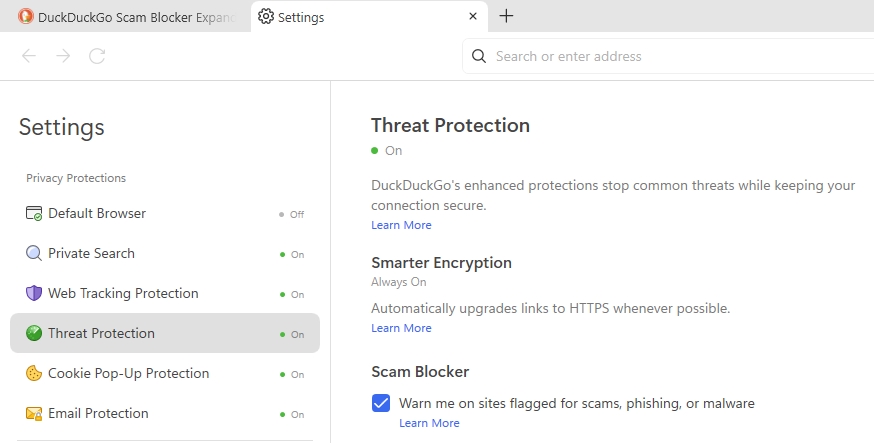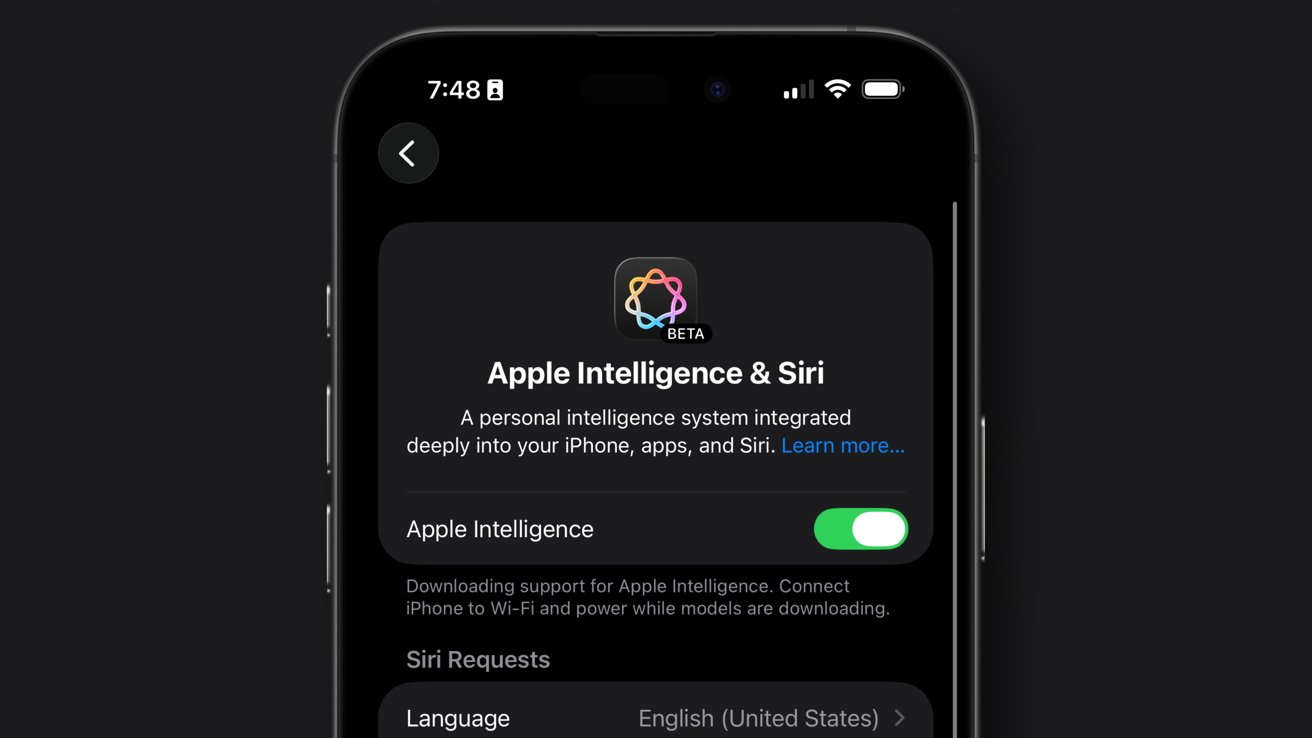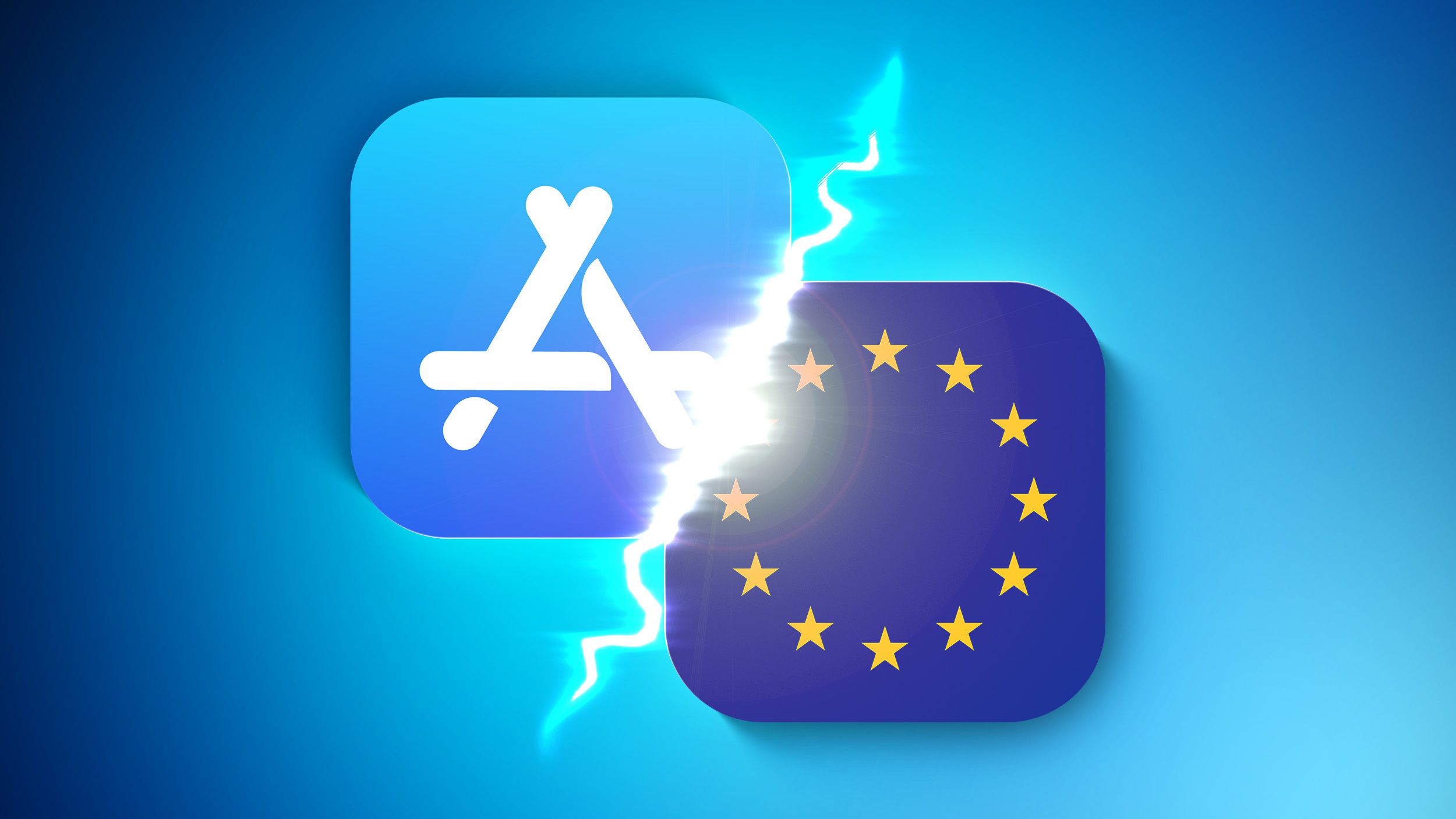DuckDuckGo Browser's Scam Blocker now protects you from scams, scareware
DuckDuckGo has announced some new features for its browser's Scam Blocker. It can now detect potentially dangerous scareware, scams, etc. You may be aware of Google's Safe Browsing. DuckDuckGo's feature is similar, […] Thank you for being a Ghacks reader. The post DuckDuckGo Browser's Scam Blocker now protects you from scams, scareware appeared first on gHacks Technology News.

DuckDuckGo has announced some new features for its browser's Scam Blocker. It can now detect potentially dangerous scareware, scams, etc.
You may be aware of Google's Safe Browsing. DuckDuckGo's feature is similar, but in addition to blocking phishing sites, malware, the Scam Blocker now protects users from fake cryptocurrency exchanges, scareware tactics, and fraudulent/sham e-commerce sites.
The announcement says that DuckDuckGo's Scam Blocker works anonymously, without sending information to Google, because it doesn't rely on Google's Safe Browsing. The company gets a feed of malicious site URLs from Netcraft, an independent cybersecurity company. This list is updated every 20 minutes by your browser. That sounds similar to how an ad blocker's filters get updated.
Once DuckDuckGo Browser downloads the list, it checks sites against those in the list on your device, and if a dangerous website is detected, it warns you about the risks. All of this is done anonymously, i.e. your data is not sent to third parties, and the protection does not require you to sign in or register for an account, that's impressive.
When you navigate to a potentially dangerous website, DuckDuckGo's Scam Blocker will display a warning like the one in the screenshot here. You may choose to leave the site, or proceed at your own risk. The browser's built-in ad blocker prevents trackers, even the malicious ones.
DuckDuckGo's announcement also points out that Google's Safe Browsing is used in other browsers like Chrome, Firefox, and Safari, and that they send information to Google while providing warnings about phishing sites.
That's not entirely accurate. Firefox uses hashed data to protect user privacy, and Safari uses its own proxy servers instead of sending your data to Google. Similarly, Edge uses Microsoft Defender SmartScreen, Brave Browser routes the requests through its own proxy-server like Apple does, and Vivaldi uses an approximation method too. So, there are some privacy-preserving measures in place in other browsers. Still, DuckDuckGo's method might be more efficient since it relies on an offline database.

DuckDuckGo Browser's Scam Blocker features are now available for desktop and mobile. The feature is enabled by default, it can be found under Settings > Threat Protection > Scam Blocker.
Thank you for being a Ghacks reader. The post DuckDuckGo Browser's Scam Blocker now protects you from scams, scareware appeared first on gHacks Technology News.















































































































































































![[The AI Show Episode 154]: AI Answers: The Future of AI Agents at Work, Building an AI Roadmap, Choosing the Right Tools, & Responsible AI Use](https://www.marketingaiinstitute.com/hubfs/ep%20154%20cover.png)
![[The AI Show Episode 153]: OpenAI Releases o3-Pro, Disney Sues Midjourney, Altman: “Gentle Singularity” Is Here, AI and Jobs & News Sites Getting Crushed by AI Search](https://www.marketingaiinstitute.com/hubfs/ep%20153%20cover.png)


























































































































![From Therapist to six figure freelance dev [Podcast #176]](https://cdn.hashnode.com/res/hashnode/image/upload/v1750249813414/8cb0019f-db6d-48af-9d20-d0ea3a4040b5.png?#)

















































.png?width=1920&height=1920&fit=bounds&quality=70&format=jpg&auto=webp#)



















![GrandChase tier list of the best characters available [June 2025]](https://media.pocketgamer.com/artwork/na-33057-1637756796/grandchase-ios-android-3rd-anniversary.jpg?#)



































































_Frank_Peters_Alamy.jpg?width=1280&auto=webp&quality=80&disable=upscale#)


































































































![Apple tells students ‘how to convince your parents to get you a Mac’ [Video]](https://i0.wp.com/9to5mac.com/wp-content/uploads/sites/6/2025/06/screenshot-2025-06-20-at-09.14.21.jpg?resize=1200%2C628&quality=82&strip=all&ssl=1)



![Nothing Headphone (1) leak allegedly shows their unique, translucent design [Gallery]](https://i0.wp.com/9to5google.com/wp-content/uploads/sites/4/2025/06/Nothing-Headphone-1-cropped.jpg?resize=1200%2C628&quality=82&strip=all&ssl=1)














![Oakley and Meta Launch Smart Glasses for Athletes With AI, 3K Camera, More [Video]](https://www.iclarified.com/images/news/97665/97665/97665-640.jpg)

![How to Get Your Parents to Buy You a Mac, According to Apple [Video]](https://www.iclarified.com/images/news/97671/97671/97671-640.jpg)
![Foxconn to Build New iPhone Enclosure Factory in India With $250M Investment [Report]](https://www.iclarified.com/images/news/97673/97673/97673-640.jpg)


















![New accessibility settings announced for Steam Big Picture Mode and SteamOS [Beta]](https://www.ghacks.net/wp-content/uploads/2025/06/New-accessibility-settings-announced-for-Steam-Big-Picture-Mode-and-SteamOS.jpg)














































